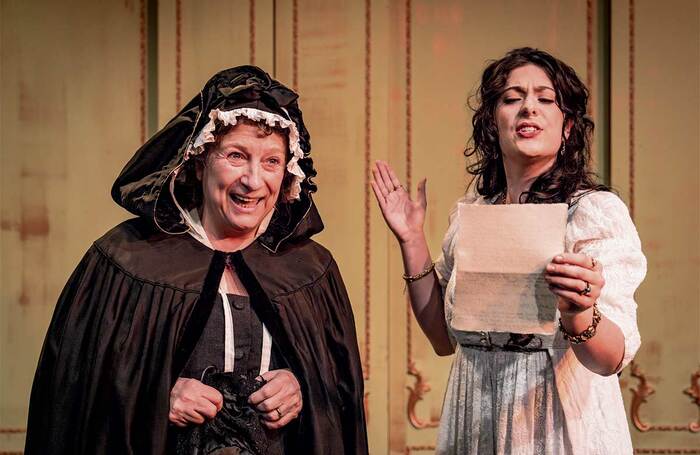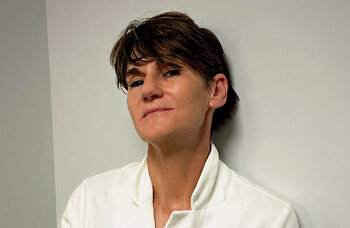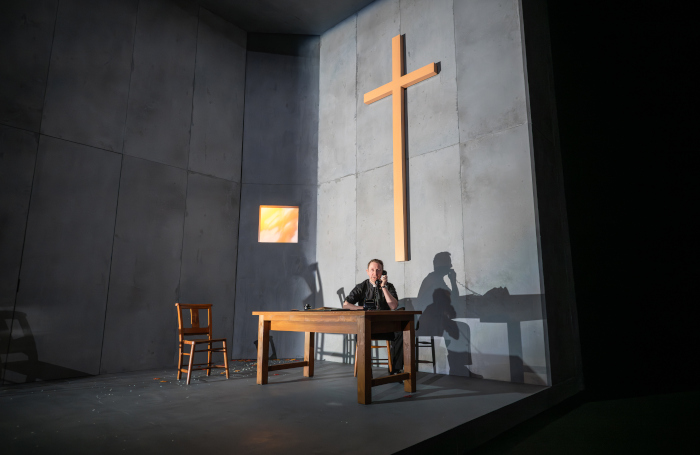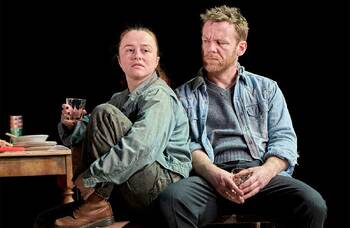Infamous review
Thoughtfully pitched dark comedy that dissects the tragic legacy of Emma Hamilton
Considering the extraordinary life of Emma, Lady Hamilton, it is surprising that more dramatists have not attempted to explore her unique place in British culture. Terence Rattigan’s play A Bequest to the Nation observes her struggles immediately before and after Trafalgar, where Nelson somewhat naively rests the future of his mistress on the good graces of the British government. Now playwright April de Angelis – no stranger to period drama – attempts to explore Emma’s life choices through her relationship with her mother Mrs Cadogan and, later in life, with her daughter Horatia. Lending another dimension to this world premiere, directed by Michael Oakley, the three women are portrayed by Caroline Quentin and her daughter Rose Quentin.
Emma Hart earned financial security with her marriage to the much older Sir William Hamilton, but she longs to be the centre of attention on the world stage. Setting her sights on Nelson, the battle-scarred saviour of the nation, she refuses to listen to her mother and embarks on an affair that scandalises polite society. Upon Nelson’s death, she escapes her creditors by moving to France, taking her daughter Horatia with her. But poverty and alcoholism bring about an early, undignified death.
Continues...
While Rattigan takes a wider view of Lady Hamilton’s fortunes, De Angelis focuses on her more intimate female relationships. In doing so, the author exposes the desperately bleak options available to women at the time. Her Emma is ambitious, delusional even, but falls into the age-old trap of believing her own publicity. An excellent Rose Quentin as the young Emma is spoiled, ruthless and yet oddly vulnerable: groomed to believe that her beauty could make her fortune, and heedless of its brevity.
Caroline Quentin’s performance, meanwhile, has all the pathos of a classic tragic clown. In widow’s weeds with her bonnet slightly askew, she bustles in as Mrs Cadogan, out of sorts with her gracious surroundings and the butt of Emma’s jibes. She is the constant, nagging reminder of Emma’s humble origins. Quentin subtly exposes the sadness and fear just beneath the surface of practically every laugh. In the second half, posing and preening as the ageing Emma, she delivers more comedy – yet the laughs are easily outweighed by the iniquity of her situation. It has whittled away at her sanity and her daughter Horatia (Rose) can no longer cope. Will she follow her mother’s lead and use her femininity to gain money and stability?
De Angelis’ conclusion makes for a tidy, if vaguely insubstantial, ending in an otherwise emotionally adroit and often very funny play. Oakley’s thoughtful, intimate production is perfectly pitched, and the mother-and-daughter casting is a genuine coup, bringing an extra layer of authenticity to the relationships.
More Reviews
Recommended for you
More Reviews
Recommended for you
Most Read
Across The Stage this weekYour subscription helps ensure our journalism can continue
Invest in The Stage today with a subscription starting at just £7.99












